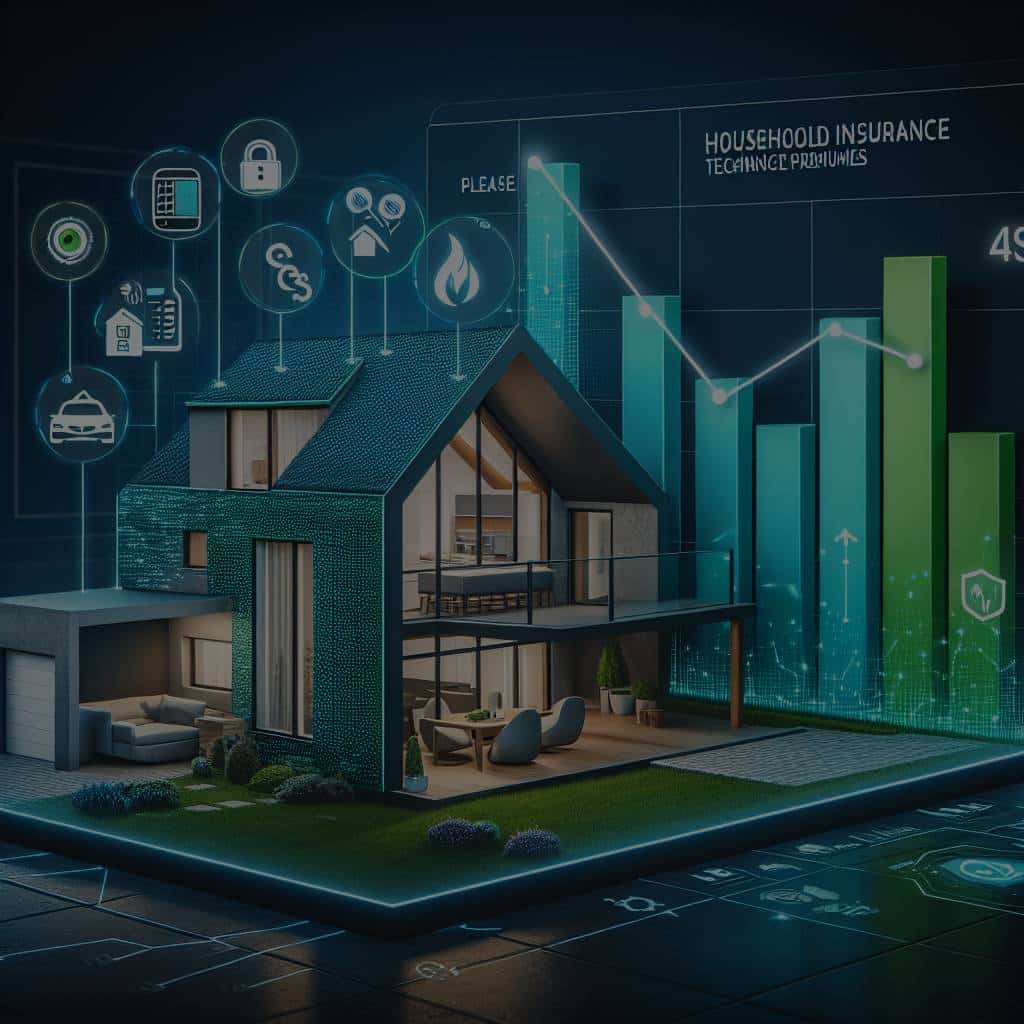Can Smart Home Technologies Reduce Household Insurance Premiums?

Can your smart home technology reduce your insurance premiums? The answer is a resounding yes.
In recent years, the insurance industry has seen a shift towards a more data-driven approach. With homeowners installing a variety of smart home devices, insurers are leveraging this technology to offer substantial discounts and alter the nature of homeowners’ policies. This article aims to shed light on the intersection of smart home technology and insurance, highlighting how such devices are transforming the way insurers assess risk and offer coverage.
In the same genre : How to Plan and Design Real Estate for Diverse and Inclusive Communities?
The Intersection of Smart Home Devices and Insurance
Before delving into the mechanics of how smart home technology affects insurance premiums, it’s essential to understand the relationship between these two sectors.
Smart home devices, such as security systems and water leak detectors, provide valuable data to homeowners and insurers. This data can help predict and prevent potential damage to the home, thereby reducing the risk of costly insurance claims.
This might interest you : What Are the Latest Techniques for Sustainable Heritage Property Renovation?
For example, a water leak detector can alert homeowners to a potential leak before significant damage occurs. This early detection can save homeowners thousands of dollars in repairs and insurers from having to pay out a substantial claim.
Moreover, insurers are beginning to recognize the value of data from these devices. They understand that this predictive capacity can help reduce risk and, consequently, the number of claims filed. As a result, many insurance companies are now offering policy discounts to homeowners who install smart home devices.
How Smart Home Devices Reduce Risk for Insurers
The primary reason why insurance companies are willing to offer substantial discounts for smart homes is the considerable risk reduction.
Smart home devices come with an array of features that improve home security and minimize potential damage. For instance, smart security cameras and doorbells can deter burglars, reducing the risk of theft. Similarly, smart smoke detectors can prevent a small kitchen fire from turning into a full-scale disaster. These devices not only protect your property but also help insurance companies reduce the amount of money they need to pay out in claims.
In addition, smart home technologies also provide insurers with real-time data about your home, allowing them to adjust your policy and premium based on the actual, current state of your home. This ability to adjust premiums in real-time based on the data provided by smart devices is a game-changer for the insurance industry.
Data and Privacy Concerns with Smart Home Devices
Not all implications of smart home devices for homeowners insurance are positive. There are also a few concerns, particularly with data security and privacy.
With smart home devices collecting vast amounts of data, there are legitimate concerns about how this data is stored, shared, and utilized. As a homeowner, it’s important to be aware of these potential privacy issues.
While it’s true that this data can help insurers to offer more tailored policies and discounts, there are ethical questions about who should have access to this data and how it should be used. After all, the data from your smart home devices provides an intimate look into your daily life.
As a homeowner, you need to ensure that your smart home devices have strong security measures in place. Additionally, it’s vital to understand the data privacy policies of both your smart device providers and your insurers.
The Future of Smart Home Technology and Insurance
The intersection of smart home technology and insurance is a rapidly evolving space. As technology continues to advance, smart home devices will become more sophisticated, offering even more predictive capabilities.
For insurance companies, this means an even greater ability to assess risk and prevent damage, leading to significant savings for both insurers and homeowners. It’s no surprise then that insurers are heavily investing in this field, with many companies developing their own smart home devices.
However, as the proliferation of smart home technology continues, it’s crucial that both insurers and technology companies address the aforementioned data privacy concerns. With appropriate regulation and transparency, smart home technology will continue to transform homeowners insurance, offering substantial benefits for homeowners, insurers, and the environment.
While the future of smart home technology and insurance is full of opportunities, it’s dependent on a careful balance between leveraging data for risk assessment and maintaining the privacy of homeowners. Regardless, the trend is clear: smart home technology will continue to play a pivotal role in homeowners insurance, shaping policies, premiums, and risk assessments. Therefore, as a homeowner, it’s beneficial to stay informed about these advancements and consider how smart home technology can help you save on your insurance premiums.
The Role of Smart Home Technology in Adjusting Insurance Premiums
In the past, insurance premiums were often based on static factors such as the age of the home, its location, and the homeowner’s credit score. However, with the advent of smart home technologies, this is changing significantly.
These devices are capable of providing real-time, actionable data on various aspects of a home, from detecting a water leak to monitoring potential intruders. This continuous flow of information allows insurance companies to make dynamic risk assessments and adjust premiums accordingly.
For instance, if a smart security system shows that a homeowner is proactive in activating their alarm and locking their doors, the insurance company might offer them a lower rate on their home insurance policy. Conversely, a home with recurrent water leaks identified by smart leak detectors might see an increase in their premiums.
Furthermore, the data from these devices can be used to incentivize proactive maintenance. A homeowner who regularly checks and maintains their home, as evidenced by their smart home technology use, may be rewarded with a lowered insurance premium.
Ultimately, by leveraging the data provided by smart home devices, insurance companies can make more accurate risk assessments, leading to more equitable premiums. This not only benefits the insurer by reducing their risk but also the homeowner, who can gain financial savings and a stronger sense of home security.
Conclusion: The Evolving Landscape of Home Insurance and Smart Home Technologies
While the proliferation of smart home technology has raised valid concerns about data security and privacy, the benefits they offer in terms of risk management and insurance premium reduction are substantial. Looking forward, a clear path is being carved for a more dynamic, data-driven approach to insurance.
Smart home devices are becoming an integral part of the insurance industry. They provide constant, real-time data that can help insurance companies make real-time adjustments to policies and premiums, based on the actual, current state of a homeowner’s property. This integration of technology into the home insurance sector is not just a passing trend, but rather an enduring shift towards more precise and equitable risk assessment.
However, it’s crucial for homeowners to ensure the security of their devices and be vigilant about the data privacy policies of both their insurance providers and smart device manufacturers. As these technologies continue to evolve and become more sophisticated, so too must the regulations and protocols surrounding their use.
In conclusion, smart home technology is poised to revolutionize the way homeowners insurance operates, offering valuable benefits for homeowners, insurers, and even the environment. Staying informed about these advancements, and actively incorporating smart home devices into your home, can potentially result in substantial savings on your insurance premiums, while also enhancing your home security. The future of home insurance undoubtedly lies in the hands of smart home technology.
